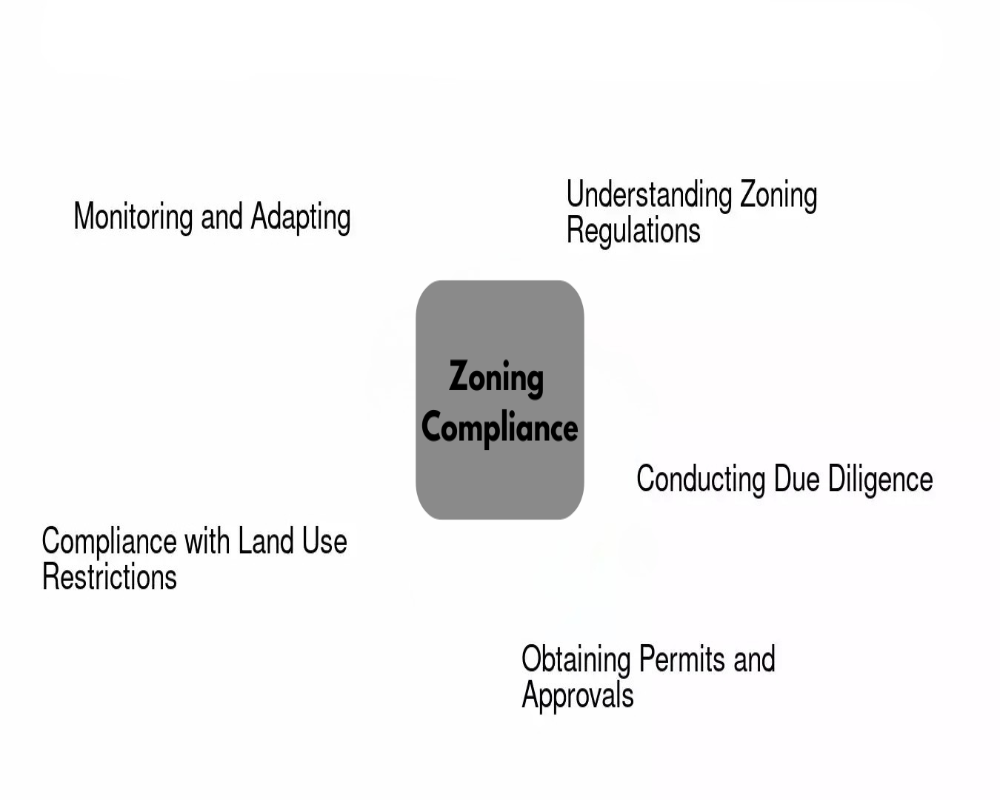Introduction
Zoning compliance, in legal terms, refers to the adherence of land use and development activities to the regulations established by a governing authority under a zoning ordinance or development control regulation. These zoning laws are enacted by local or regional planning bodies to control and guide the physical development of land and to ensure that specific areas are reserved for compatible uses—such as residential, commercial, industrial, institutional, or recreational—based on an approved master or comprehensive plan.
Zoning compliance ensures that any construction, modification, land use change, or expansion project strictly conforms to the designated zoning classification of a particular property. Legally, it forms the basis for granting development permissions, occupancy certificates, and operational licenses. It is also a prerequisite for financial institutions, insurers, and government agencies involved in land transactions or industrial project approvals.
Nature and Legal Authority of Zoning Regulations
Zoning regulations derive their legal authority from municipal acts, urban planning statutes, and land use laws passed by state or national legislatures. These laws empower planning commissions, municipalities, and urban development authorities to divide their jurisdiction into zones, each with specific permissible and prohibited uses, density limits, building height restrictions, floor area ratios (FAR), setback rules, and coverage ratios. Compliance with zoning norms is a matter of statutory obligation. Failure to comply can result in penalties, demolition orders, or cancellation of development rights.
The zoning designation of a parcel of land legally determines what activities may be carried out on that land. For example, an industrial zone may legally allow manufacturing, warehousing, or logistics, while a residential zone may prohibit such activities altogether. These distinctions are critical, as they help prevent conflicts between incompatible land uses and promote orderly development, environmental protection, and infrastructure planning.
Zoning Compliance as a Legal Condition for Development
Before undertaking any construction or land development activity, a landowner or developer is legally required to obtain approval from the local authority confirming that the proposed activity is in compliance with the prevailing zoning rules. This includes submitting a site plan, building design, land use proposal, and any required impact assessments. The planning authority reviews these documents to ensure alignment with zoning maps and development control regulations.
If the proposal meets the legal criteria, the authority issues zoning clearance or planning permission, which serves as a legal license to commence the project. Without such compliance, any construction undertaken is considered unauthorized or illegal and may be subject to enforcement action.
Zoning compliance is also crucial during change-of-use applications. For instance, if a developer intends to convert an agricultural parcel into an industrial estate, legal conversion under land use change rules must be sought. This process involves both zoning verification and approval, and often includes public notice and hearings, particularly if the conversion impacts surrounding properties or environmental resources.
Legal Implications of Non-Compliance
Zoning compliance is not just a procedural requirement; it carries significant legal implications. If a property is developed in violation of zoning rules, local authorities have the power to initiate enforcement measures, including issuing stop-work notices, levying fines, initiating eviction or demolition proceedings, and revoking any licenses or permits granted. In many jurisdictions, continued non-compliance can even attract criminal liability, particularly when public safety or environmental regulations are violated.
Additionally, a property that does not meet zoning compliance standards may be rendered ineligible for utilities, finance, insurance, or resale. For industrial projects, non-compliance can result in the loss of approvals from pollution control boards, factory licensing authorities, or fire safety departments, each of which require zoning conformity as a condition for granting operational permissions.
Zoning Compliance in Industrial Context
For industrial developments, zoning compliance is a key legal requirement not only for initiating construction but also for securing operational stability. Industrial units must be situated within lands designated as industrial zones by the planning authorities. These zones are specifically allocated to prevent industrial activities from affecting residential neighborhoods, sensitive ecosystems, or public infrastructure.
Additionally, specific sub-categories of industrial zoning may apply—for example, light industry, heavy manufacturing, hazardous processing, or warehousing—with each having unique conditions, such as buffer zone requirements, setback distances, emission limits, and traffic flow considerations. Legal compliance ensures that industrial activity is aligned with public health, safety, and sustainability goals.
In the event that a proposed industrial use does not conform to the assigned zoning category, developers must apply for a zoning variance or special permit, which is a legal procedure allowing deviation under specific, justified circumstances. These variances must be reviewed and granted by the competent zoning appeals board or urban planning authority after assessing their legal and environmental implications.
Conclusion
Zoning compliance, in legal terms, is the formal adherence to land use laws and regulatory frameworks that govern how land and buildings may be used, developed, or modified within a designated planning jurisdiction. It is not merely an administrative formality but a binding legal obligation with far-reaching implications for the legality, sustainability, and viability of land development projects. Ensuring zoning compliance before and during any land transaction or construction activity protects the interests of landowners, investors, public authorities, and the community at large. In industrial contexts, it forms a critical part of regulatory compliance and operational legitimacy, directly impacting the success and continuity of industrial enterprises.
Hashtags
#ZoningCompliance #LegalTerms #LandUseLaw #ZoningRegulations #PropertyLaw #UrbanPlanning #LegalDefinitions #ZoningLaws #RealEstateLaw #ComplianceMatters #LandUseCompliance #ZoningOrdinance #LegalAdvice #PropertyDevelopment #ZoningIssues #MunicipalLaw #PlanningLaw #RealEstateCompliance #ZoningEnforcement #LegalGuidance


